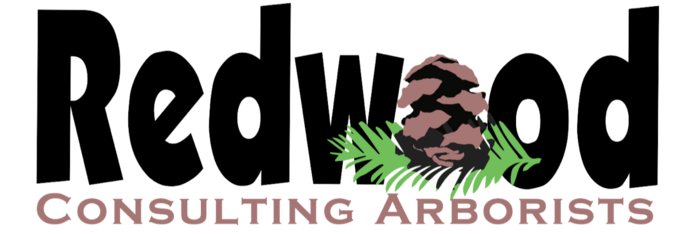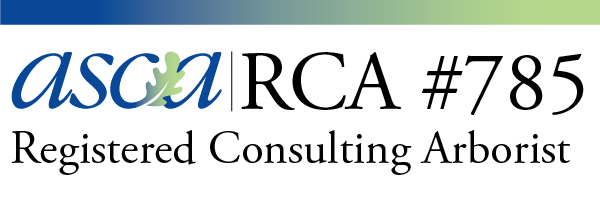Maryland Licensed Tree Expert LTE#2786
All tree care professionals in Maryland are required to obtain a license. Anyone wishing to provide or promote tree care services in the state must acquire a license from the Maryland Department of Natural Resources.
 ISA member (International Society of Arboriculture)
ISA member (International Society of Arboriculture)
Through research, technology, and education, the International Society of Arboriculture (ISA) promotes the professional practice of arboriculture and fosters a greater worldwide awareness of the benefits of trees.
 ASCA member (American Society of Consulting Arborists)
ASCA member (American Society of Consulting Arborists)
ASCA represents Consulting Arborists—the authoritative experts on trees and whose objective, comprehensive viewpoint ensures the safety, health, and preservation of trees. Our members’ extensive level of knowledge and experience makes them highly sought after by consumers, professionals, and other arborists.
 RCA (Registered Consulting Arborist)
RCA (Registered Consulting Arborist)
Consulting Arborists are the authoritative experts on trees and bring an objective, comprehensive viewpoint to their clients—ensuring the safety, health, and preservation of trees.
ASCA Registered Consulting Arborist® (RCA) demonstrates higher skills in certain technical areas related to trees and tree care, providing independent opinions, with training for higher communication, presentation, and report writing skills.
 ISA Board Certified Master Arborist
ISA Board Certified Master Arborist
ISA Certified Arborists are arborists that follow a code of ethics that ensures the reliability and credibility of their work. Hiring a tree service that has certified arborists on staff is the best way to guarantee your safety, your property, and the workers.
 TRAQ – Tree Risk Assessment Qualification
TRAQ – Tree Risk Assessment Qualification
The International Society of Arboriculture (ISA) offers TRAQ as an instructor-led credential that demonstrates professional knowledge in tree risk assessment through participation in a training course and passing its accompanying exam.
![]() TPAQ - Tree and Plant Appraisal Qualification
TPAQ - Tree and Plant Appraisal Qualification
ASCA created the Tree and Plant Appraisal Qualification (TPAQ) program that teaches professionals about the theory and application of appraisal approaches, methods, and techniques.
![]() CTSP ( TCIA Certified Treecare Safety Professional)
CTSP ( TCIA Certified Treecare Safety Professional)
TCIA’s Certified Treecare Safety Professional (CTSP) program is the only safety credentialing program in the industry and is designed to address several of the safety challenges that tree care companies face. The Certified Treecare Safety Professional must complete a rigorous certification program requiring at least one of three eligibility requirements:
Three years’ of technical field experience in tree care with at least one year of assumed responsibility for safety (i.e., crew leader, trainer, safety committee member, emergency responder, certified CPR/first aid provider, etc.)
Six months’ technical field experience in arboriculture and one year in a professional safety position
Two- or four-year degree in Arboriculture, Forestry, Ornamental/Environmental Horticulture, Natural Resources, Industrial Hygiene, Occupational Safety, or other related fields with an internship that provided technical field experience.
When the program is completed, an ideal CTSP shares attributes of a coach, including:
Good communication skills
Strong instructional skills
Model behavior that leads to a safer work environment
![]() TCIA PHCT - Plant Health Care Technician
TCIA PHCT - Plant Health Care Technician
TCIA’s Tree Care Academy, PHC Technician program, builds on material presented in Tree Care Specialist and includes site mapping, advanced soil management, tree fertilization and nutrition applications, pesticide selection and application, integrated pest management (IPM) concepts, bio-controls, and organic tree care concepts.
Program includes:
FAA Small Unmanned Aircraft (Drone) System Airman Certificate
The use of drones in arboriculture can provide numerous benefits such as Tree health assessment, Efficient surveying, Improved safety and Enhanced accessibility. Overall, the use of drones in arboriculture provides arborists and tree management professionals with valuable data, improved safety, cost savings, and enhanced efficiency. By leveraging drone technology, arborists can make informed decisions, protect tree health, and contribute to sustainable management of tree resources.
![]() TCIA EHAP (Electrical Hazard Awareness Program) Certification
TCIA EHAP (Electrical Hazard Awareness Program) Certification
Electricity is a serious and widespread hazard to arborists. In fact, electricity causes about 15 percent of all fatalities in the tree care industry, making it the leading cause of worker fatalities.
Since even a street lamp circuit or phone line can be energized with enough voltage to kill, almost all arborists in the field have at least some exposure to this hazard. In fact, workers don’t even have to touch a wire to be electrocuted – about half of all electrocution fatalities are the result of indirect contact. Tree branches and other conductive objects are an ever-present threat to the industry.
All arborists are trained to recognize and avoid these electrical hazards. Qualified line-clearance arborists must have additional knowledge about electrical hazards and the special techniques used to work safely near electrical conductors.
 TCIA Tree Care Specialist Certification
TCIA Tree Care Specialist Certification
The Tree Care Industry Association (TCIA) is a trade association of 2,300 tree care firms and affiliated companies and was established in 1938 as the National Arborist Association. Our mission is to advance tree care businesses.
TCIA develops safety and education programs, standards of tree care practice, and management information for tree and landscape firms around the world. We provide continuing education, training, conferences, and publications to promote the safe and appropriate practice of tree care.
TCIA Tree Care Safety Specialist Certification
Redwood Consulting Arborists have completed the Tree Care Safety Specialist required course. It guides participants through the knowledge assessment and self-evaluation needed to be a safety leader. The course covers identifying hazards, keeping yourself safe, and introducing coaching to peer members.
TCIA Qualified Trainer
A TCIA Qualified Trainer is a professional who has earned certification from the Tree Care Industry Association (TCIA), demonstrating a high level of expertise in tree care and safety. These trainers are skilled in providing hands-on instruction and education to industry professionals, helping them enhance their skills in tree climbing, pruning, safety procedures, and equipment use. With a TCIA Qualified Trainer, you can expect training that follows industry standards, ensuring your team operates safely and efficiently in the field. Whether for basic certifications or advanced skills, a TCIA Qualified Trainer helps enhance knowledge, safety, and productivity in tree care.
Qualified Trainer - Intro to Arboriculture Safety , EHAP, Tree Care Specialist , Plant Health Care Technician (PHCT) , Tree Care Safety Specialist , Crew Leader – Train the Trainer, A300 Writing Pruning Specifications.


